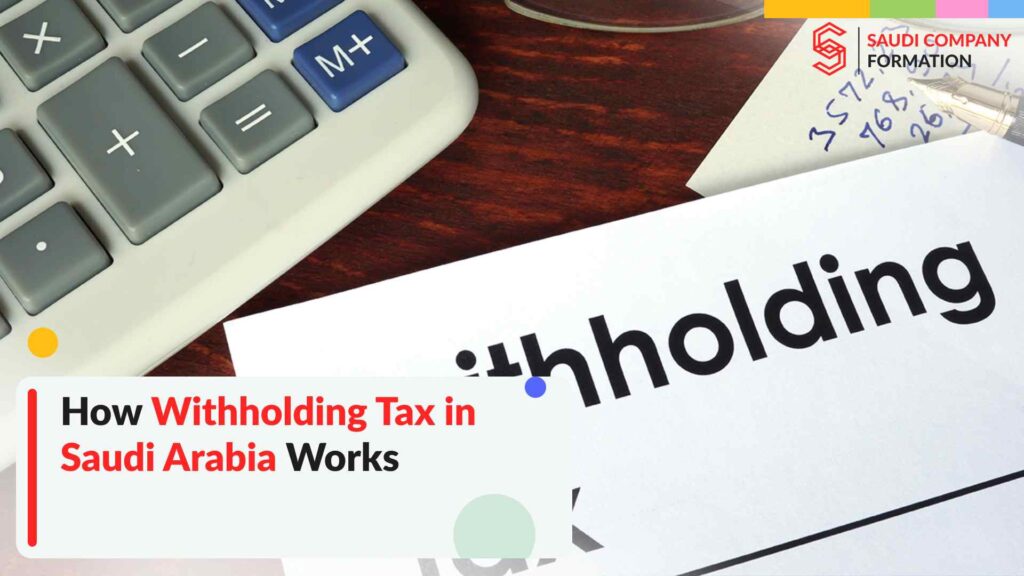Usually, foreigners have many reasons why they want to immigrate to Saudi Arabia. The Saudi Kingdom provides ex-pats and Saudi nationals with several opportunities to rack profits. Business set-ups and startups, industries to invest in; the country provides a lot of chances for foreign entrepreneurs. However, the main reason they immigrate is the fact that the system of taxation in Saudi Arabia is one of the best in all of the Middle East.
In this article, you can learn about taxation in Saudi Arabia. With these explanations, you will be able to know all about the basics of the Saudi Taxation system. We will cover:
- How is the taxation system in Saudi Arabia?
- What levies does the Saudi taxation system comprise?
- Tax residency in Saudi Arabia
- Changes in the Saudi Arabian tax legislation
- Saudi Arabia and the main tax rates applicable in the country
- Additional information regarding Saudi taxes
- How can we help you understand the taxation system in the country?
How is the taxation system in Saudi Arabia?
The Saudi taxation system is basic and easy to understand, but it is not simple. In the country, tax regulations are brief and their provisions are clear, respecting the items they deal with. Nevertheless, even though many areas are easy to understand, others remain open and are subject to interpretation. In these cases, businesses and individuals should take a position on those unclear areas to prepare their position´s defense during tax audits.
In addition to this, requirements in Saudi taxes are reasonable but they are not negotiable. For instance, you can only file 1 corporate income tax per year but there are no deadline extensions. Moreover, there also are no adjusted resubmissions except arithmetic error corrections. In the case this is not met, then companies become subject to penalties.
Saudi taxes are stable, meaning that taxpayers can plan their tax affairs and costs for the future. This is a really good advantage that only a few economies offer across the world. The government enacted this law in 2004, 18 years ago, and it is known (ironically) as the New Income Tax Law. The stability of these tax rules is notable thanks to the constant reforms that the country has gone through. This includes foreign investments, immigration, finance, securities market, and labor.
Lastly, you need to take into consideration that Saudi Arabia operates two parallel tax systems. Mainly, different tax regimes apply to companies owned by nationals and others owned by foreigners. Saudi nationals are subject to the zakat payment, while other firms pay corporate income tax. This zakat liability that the Saudi taxation system applies to these companies is based on Islamic religious rules.
What levies does the Saudi taxation system comprise?
As we have seen, taxation in Saudi Arabia is pretty flexible and easy to understand. However, in comparison to other countries, Saudi Arabia has some taxes that they do not levy or do so differently. Here are the levies that the Saudi taxation system comprises.
Income and corporate income tax
Taxation in Saudi Arabia levies this tax based on different types of earnings in the country. Mainly, there is no personal income tax in Saudi Arabia. However, the government applies a 20% flat income Saudi Arabia tax rate to tax-adjusted profits of Saudi residents.
Moreover, foreigners that do not have a legal registration or permanent establishment in the KSA are subject to withholding tax based on the income they derive from a source. Additionally, a resident entity in Saudi Arabia must withhold these taxes from the payments that they make to ex-pats related to their derived income. The withholding tax rates are:
- 20% tax for management fees.
- 5% tax for dividends, interest, rent, payments made for technical and consulting services, air ticket payments, shipping, international phone services, and insurance.
- 15% tax for royalties, payments to head office or affiliated company, and payments to other services.
- 15% tax for all other payments.
Capital gains tax
The capital gains tax in Saudi Arabia is one of the few taxes that individuals levy when it comes to taxation in Saudi Arabia. This tax is calculated based on the difference between the cost base of the company´s shares and the consideration. The government deems the latter of these 2 to be the highest of the:
- Contract Value.
- Market Value.
- Or Book Value, at least according to company records.
Lastly, there are several things to take into consideration, for the capital gains tax in Saudi Arabia are:
- A capital gain tax of 20% for capital gains that a non-resident realized on disposal of shares of a KSA entity.
- No gain or loss for capital gains on the transfer of shares or assets between companies within the same groups.
- A Zakat of 2.5% or a tax of 20% as a capital gain or ordinary income. This case is for capital gains that a resident shareholder realized on the disposal of shares in a KSA-resident entity.
- A Zakat of 2.5% or a tax of 20% depending on the selling shareholder´s status. This case is for capital gains on the disposal of property or assets used in business activities.
Zakat payment
As we previously mentioned, only Saudi nationals have to wage the Zakat payment. The Zakat is a special donation imposed on the surplus income of taxpayers. You can calculate the Zakat based on 2.5% of the wealth one possesses above the Nisab.
The Nisab is equal to 85 grams of 24k gold. This is the minimum amount of wealth that a Saudi national must have before they can pay the Zakat. Moreover, the Zakat itself is liable to silver, cash, savings, gold, rent income, profits of business merchandise, investments, securities, bonds, and shares.
VAT (Value-Added Tax)
Last, but not least, there is the Value-Added Tax (VAX) for taxation in Saudi Arabia. This law is the newest levy added to the taxation system. The government imposes the VAT at a Saudi Arabia tax rate of 5% for most services and goods. However, some exceptions are applicable. However, in early July 2015, the VAT tax rate increased to 15%.
Tax residency in Saudi Arabia
In many countries all around the world, the country takes residency into account to impose a tax. This is also the case for taxation in Saudi Arabia. In the Saudi Kingdom, the tax assessment relies on the residency of the one paying the taxes. Foreign investors are liable for income tax, while on the other hand, nationals are liable for the Zakat payment.
As for the Saudi Arabia tax rate, this varies depending on several factors. Some of these factors are the activity that the business operates in as well as higher rates applied to companies in oil and hydrocarbon production. Simply put, as we previously mentioned, taxation in Saudi Arabia is not complicated. Nevertheless, there still are several key aspects to consider.
Changes in the Saudi Arabian tax legislation
As with every other aspect of the country, taxation in Saudi Arabia changed in 2018. In that year, several novelties were introduced to this system. Mainly, the introduction of VAT was one of them. The other one is the abolishment of the Natural Gas Investment Tax. This implied that the taxation of investment in the sector of natural gas was now at a standard rate of 20%.
However, if you still have more questions, our company formation agents in Saudi Arabia can help you. With their services, you can get more information on the latest laws that are applicable through our lawyers here. Moreover, if you decide to open a company in this country, you can also rely on us to get assistance with the registration process with the Tax and Customs Authority. That way, you can obtain both tax and VAT identification numbers.
Saudi Arabia and the main tax rates applicable in the country
Furthermore, when it comes to doing business in Saudi Arabia and taxes, you need to take into consideration the Saudi Arabia tax rate. This tax rate is the value at which the income levy applies. When it comes to corporations, the following rates are available to this day:
- 20% standard rate for most companies, except those in oil and hydrocarbon production.
- Rates range between 50% and 85% for businesses in the oil and hydrocarbon sectors. However, this value depends on the level of investment in the company.
- A 2.5% Zakat value is set for Saudi nationals as we previously mentioned.
- 5% VAT imposed on companies. This is one of the lowest Value-Added Tax rates in the world.
However, as we mentioned, oil and hydrocarbon production changes some aspects of Saudi Arabia’s tax rates. The rates apply as follows:
- 50% tax rate for those companies with more than 100 Billion USD for investments.
- 75% tax rate for those companies with between 60 to 80 Billion USD for investments.
- 85% tax rate for those companies with up to 60 Billion USD.
Additional information regarding Saudi taxes
Who is liable?
Several individuals are not liable to the Saudi taxation system. Mainly, Saudi and other GCC (Gulf Cooperation Council) nationals are not subjected to income tax in Saudi Arabia. These states include Bahrain, Kuwait, Oman, Saudi Arabia, the UAE, and Qatar.
On the other hand, ex-pats and non-resident Saudi/GCC nationals are subject to income tax on their business income. This also applies to entities with a permanent establishment in Saudi Arabia. Additionally, payments to these non-residents in question are subject to withholding tax.
Residence status for tax purposes
For a tax year, an individual is considered a Saudi Arabian resident if they meet the following conditions:
- Having a permanent place of abode in the country and if they reside in the country for a total period of at least 30 days of that tax year.
- The person must have at least resided in Saudi Arabia for 183 days in the tax year.
Income is subject to tax
- Employment income: For employment income and allowances (including allowances and education) that the ex-pat receives are not subject to tax in the Saudi Kingdom.
- Self-employment and business income: In these cases, Non-Saudi/GCC ex-pats cannot usually carry on trading activities in Saudi Arabia. Nevertheless, they may carry out these activities if they can obtain appropriate licenses from the Saudi Arabian General Investment Authority.
In this case, the taxation in Saudi Arabia is levied on profits from a source in the country. This is derived from self-employed Non-Saudi/GCC professionals and consultants. Moreover, losses are carried forward indefinitely. However, the maximum loss offset against a year´s profit is 25% of tax-adjusted profits for the year.
- Investment income: In this case, the taxation in Saudi Arabia for foreigners derives from Saudi project investments at a rate of 20%. Nevertheless, these investments do not include bank account opening or trades in the company’s shares that are registered on the Saudi Stock Exchange. Furthermore, we recommend that, as a foreigner, you seek professional advice on your investment income taxation.
Capital gains
As we previously mentioned, the government taxes capital gains as ordinary income. However, this is only the case if the individual is a person subject to tax in the country and if they realize the gain in connection with their business activities. This is done together with other income that the individual earned for the same period at a Saudi Arabia tax rate of 20%.
However, as for the sales of shares traded on the stock exchange, capital gains are exempt from tax on the following conditions:
- If it is done for the disposal of shares that are traded in Tadawul (Saudi Stock Exchange). This disposal must be done in compliance with Saudi Arabia´s Capital Market Law.
- If they do so for the disposal of shares that they trade on a foreign stock change. For the exemption to apply, you must also trade the securities on the Tadawul.
- In all cases where the individual acquires shares after the 30 of July 2004. This date is the date of the enforcement of the Income Tax Law.
- The government also exempts capital gains from the following share sales in a listed entity. However, according to the General Authority of Zakat and Tax (GAZT), the following conditions are met:
- They sell the founders´ shares.
- Sale of bonus shares or stock dividends.
- Sale of the shares via a privately negotiated transaction.
Lastly, any gains made for the disposal of property, other than the assets that a business activity uses, can also be exempt.
Social Security
Any employer needs to pay insurance tax on behalf of their employees in Saudi Arabia. They levy contributions based on basic salary including the housing allowance. Saudi nationals are subject to the contributions of the pension and insurance of unemployment at 18 and 2% respectively.
Nevertheless, the pension contributions do not have to be according to other foreign employees. Employers need to pay these contributions for occupational hazards at an insurance rate of 2%.
Tax filing and payment procedures
Self-employed foreign professionals and resident foreign individuals that carry out business activities need to file a tax return. Furthermore, they need to pay this tax due within 120 days after the tax year ends. If you desire, you can make an advance payment in 3 installments by the end of the 6th, 9th, and 12th months of the tax year. However, they do not need to make advance payments if they pay less than SAR 500.000 for each payment.
Moreover, they receive a delay fine of 1% for every 30 days after the first 30 days they do not make an advanced payment. Additionally, fines also apply to those who do not submit tax declarations by the deadline.
Tax treaties
Lastly, you might wonder about the treaties the taxation in Saudi Arabia has with other countries. Saudi Arabia has a tax treaty in force with other 51 countries.
How can we help you understand the taxation system in the country?
On Saudi Company Formation, we are your business allies. As can be seen, taxation in Saudi Arabia is flexible in comparison to other Middle Eastern countries. However, even with this information, you might have several questions regarding not only Saudi taxes but also other services in the country. Thankfully, our company formation agents can help you and guide you as well as answer all questions you have. We offer tax consultancy, business setup, and many other services, including:
When deciding to immigrate to Saudi Arabia, the tax system is one of, if not, the most important aspects that a foreigner needs to consider. From this point of view, the Saudi taxation system has all the necessary aspects that attract investors and qualified employees. Moreover, Saudi Arabia does not imply any levy on natural persons in Saudi taxes as long as the income comes from employment.
Would you like to contact us and know more about taxes such as the capital gains tax in Saudi Arabia or others? You can email us at office@companyformationsaudiarabia.com or contact us at +971 58 515 8876. That way, you will be able to get an answer to all of your queries. Moreover, you can also seek other services from our company formation agents in Saudi Arabia.








